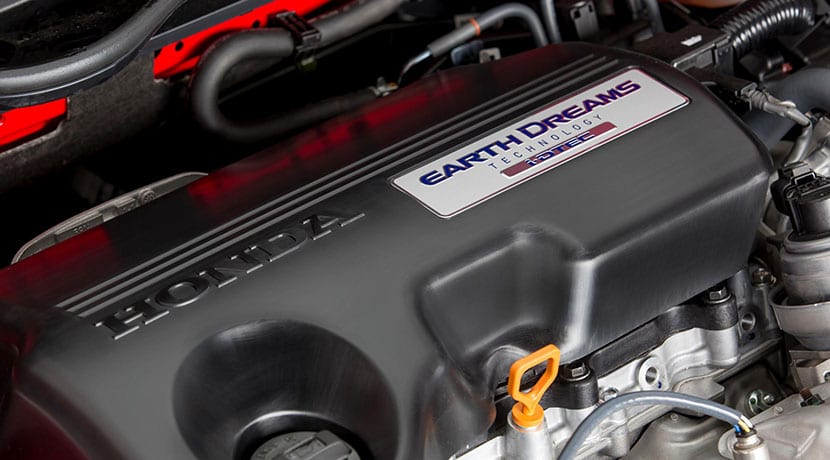
El Honda Civic It is one of the cars with the greatest character and personality in the C segment, that of the compact cars. It arrived a few months ago on the Spanish market, first with a hatchback body and later with another sedan, but it was only offered with two gasoline mechanics, a three-cylinder with 129 hp and another four-cylinder with 182. Today the Japanese firm announces the arrival of a diesel mechanic which will increase the clientele of your compact model.
Although the Honda Civic is a global product, the mechanical 1.6 i-DTEC diesel that will arrive in March 2018 It will only be sold on the European market. This engine develops a maximum power of 120 CV at 4.000 rpm and 300 Nm of torque to 2.000. Its acceleration value from 0 to 100 km/h in 10,4 seconds, while it registers average consumption of 3,7 l/100 km and 99 g/km of CO2.

It is not a new engine, but an improvement of the 1.6 liter i-DTEC already used previously by the Honda Civic. In this tenth generation it has received some adjustments to, among other things, overcome current anti-pollution regulations. Honda comments that one of its most notable changes is pistons made of new materials – highly durable chrome molybdenum steel alloy – which reduce internal friction.
This XNUMXth generation Honda Civic diesel mechanic will be assembled at Honda's factory in Swindon (United Kingdom), and will reach both the five-door body and the four-door sedan. As we have said, it will be available from March. Initially it will be marketed with a six-speed manual gearbox, although a nine-speed automatic transmission will arrive in the middle of the year.
The diesel Civic will be officially presented in Frankfurt Motor Show, in just one month, and its prices for our market are still unknown.

but if diesels are going to ban them everywhere...
True, but the diesels still take a good part of the cake. There are clients, whether individuals or companies, who travel several thousand kilometers per month and continue to compensate them for the purchase of a diesel. All the best ?
Less and less, we are already at 50/50. The acquisition cost, the maintenance cost, the high failure rate due to the dpfs and the limitations in large cities. A new gasoline is very efficient and consumption is not so different.
Exact ?
I had to have done that... 5 or 6 years ago... now. ..for what if the future is hybrid gasoline...diesel mechanics...every day they will go less.
But not launching at least one diesel version in this generation would lose a good handful of sales.
Now he takes out a diesel, everyone saying that diesels have their days numbered.
It is obvious that the diesel engine is much more profitable than a gasoline engine when it comes to doing kilometers, surely this diesel honda civic will be a good claim !!
whoever has had diesel and gasoline cars, has not the slightest doubt, that a diesel engine has the peace of mind that you go at the speed you go, consumption hardly increases, including acceleration
but a gasoline car, you have to go at idle and speeds not exceeding 100 km/h, otherwise you want consumption to skyrocket, as soon as you touch the accelerator a little, or in the city or you increase speed a little to 130 km/h , consumption skyrockets and therefore the enjoyment of traveling without having to worry about consumption and the money that the trip is going to cost you
consumption does not tell the truth, that is why most European cars are diesel, because they have discovered this, driving in the city or a little cheerful or stepping on it a little, in a diesel it goes to 5 or 6 liters, in a gasoline does not drop below 10 liters